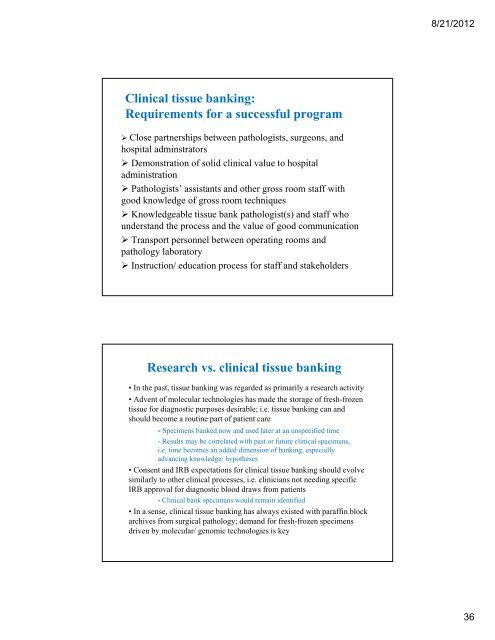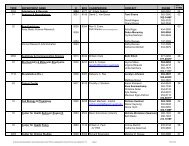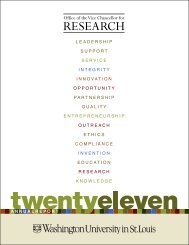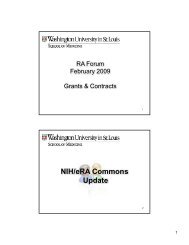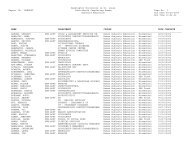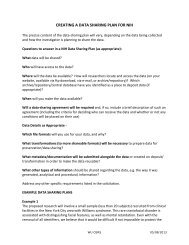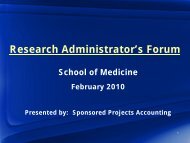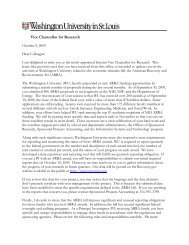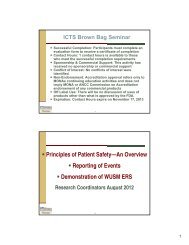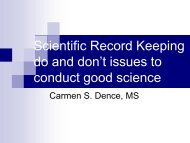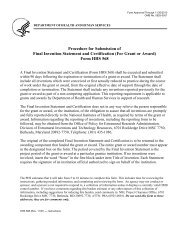Tissue Banking Overview: Washington University Medical Center
Tissue Banking Overview: Washington University Medical Center
Tissue Banking Overview: Washington University Medical Center
You also want an ePaper? Increase the reach of your titles
YUMPU automatically turns print PDFs into web optimized ePapers that Google loves.
8/21/2012<br />
Clinical tissue banking:<br />
Requirements for a successful program<br />
‣ Close partnerships between pathologists, surgeons, and<br />
hospital adminstrators<br />
‣ Demonstration of solid clinical value to hospital<br />
administration<br />
‣ Pathologists’ assistants and other gross room staff with<br />
good knowledge of gross room techniques<br />
‣ Knowledgeable tissue bank pathologist(s) and staff who<br />
understand the process and the value of good communication<br />
‣ Transport personnel between operating rooms and<br />
pathology laboratory<br />
‣ Instruction/ education process for staff and stakeholders<br />
Research vs. clinical tissue banking<br />
• In the past, tissue banking was regarded as primarily a research activity<br />
• Advent of molecular technologies has made the storage of fresh-frozen<br />
tissue for diagnostic purposes desirable; i.e. tissue banking can and<br />
should become a routine part of patient care<br />
- Specimens banked now and used later at an unspecified time<br />
- Results may be correlated with past or future clinical specimens,<br />
i.e. time becomes an added dimension of banking, especially<br />
advancing knowledge/ hypotheses<br />
• Consent and IRB expectations for clinical tissue banking should evolve<br />
similarly to other clinical processes, i.e. clinicians not needing specific<br />
IRB approval for diagnostic blood draws from patients<br />
- Clinical bank specimens would remain identified<br />
• In a sense, clinical tissue banking has always existed with paraffin block<br />
archives from surgical pathology; demand for fresh-frozen specimens<br />
driven by molecular/ genomic technologies is key<br />
36


